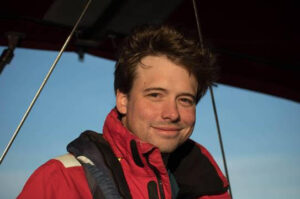
- This event has passed.
Progress and Challenges in Quantum Algorithms for Quantum Chemistry: Hard Lessons from the Field
Abstract
One of the standard arguments for building a quantum computer is that we might profitably use the entanglements between qubits to simulate the correlations between electrons and thus solve a myriad of important chemical and material design problems. While this is surely an elegant and effective one-line funding justification, the devil is very much in the details. This talk will provide an overview of some significant progress made over the last five years in this area by both the field and in a few examples by the team I work with at QC Ware, and will also discuss some serious challenges that remain for us to achieve practical quantum advantage for quantum chemistry. On the positive side, some specific topics to be discussed are quantum number preserving gate fabrics that finally provide a clean mapping of electrons to qubits, quantum symmetry adapted perturbation theory as a desperate riposte to the problem of subtractive cancellation in NISQ algorithms, and quantum Krylov methods that might provide a compelling alternative to the variational quantum eigensolver. On the negative side, we will look at the relentless progress of classical quantum chemistry methods for solving the average-case chemical problem, the obvious difficulty of parameter optimization in variational quantum algorithms, and the current state of performance of real hardware experiments. The resultant picture is that quantum chemistry remains a highly compelling target for practical quantum advantage, but that urgent attention is needed to remove some dangerous remaining uncertainties in the field.
Speaker Bio
 Rob Parrish leads the quantum chemistry technology mission at QC Ware. Rob has spent the bulk of his early career learning how to use many types of hardware to accelerate quantum chemistry codes, including CPUs, GPUs, and even some forays into forthcoming QPUs. He has key interests in getting either more detailed or more complete information out of quantum chemistry codes, as exemplified by his efforts to robustly decompose interaction energies with “F-SAPT” methodology or to provide complete workflows for experimental observables like spectroscopies and conformer distributions. Rob operates under the strong hypothesis that quantum chemistry is imminently due to provide the same digital transformation to chemistry that computational fluid dynamics did for aeronautical engineering, and works daily to be a small part of that transformation.
Rob Parrish leads the quantum chemistry technology mission at QC Ware. Rob has spent the bulk of his early career learning how to use many types of hardware to accelerate quantum chemistry codes, including CPUs, GPUs, and even some forays into forthcoming QPUs. He has key interests in getting either more detailed or more complete information out of quantum chemistry codes, as exemplified by his efforts to robustly decompose interaction energies with “F-SAPT” methodology or to provide complete workflows for experimental observables like spectroscopies and conformer distributions. Rob operates under the strong hypothesis that quantum chemistry is imminently due to provide the same digital transformation to chemistry that computational fluid dynamics did for aeronautical engineering, and works daily to be a small part of that transformation.